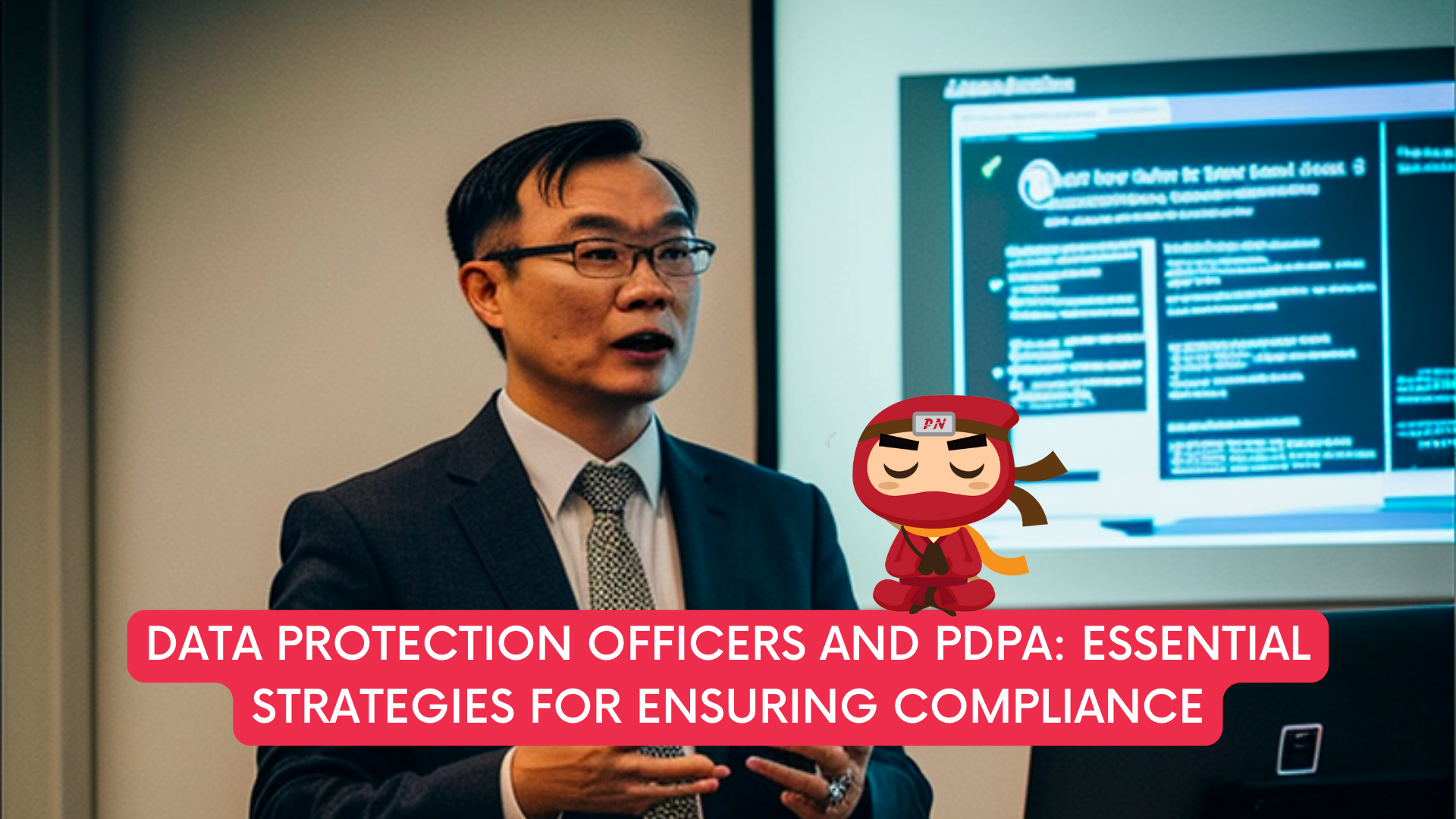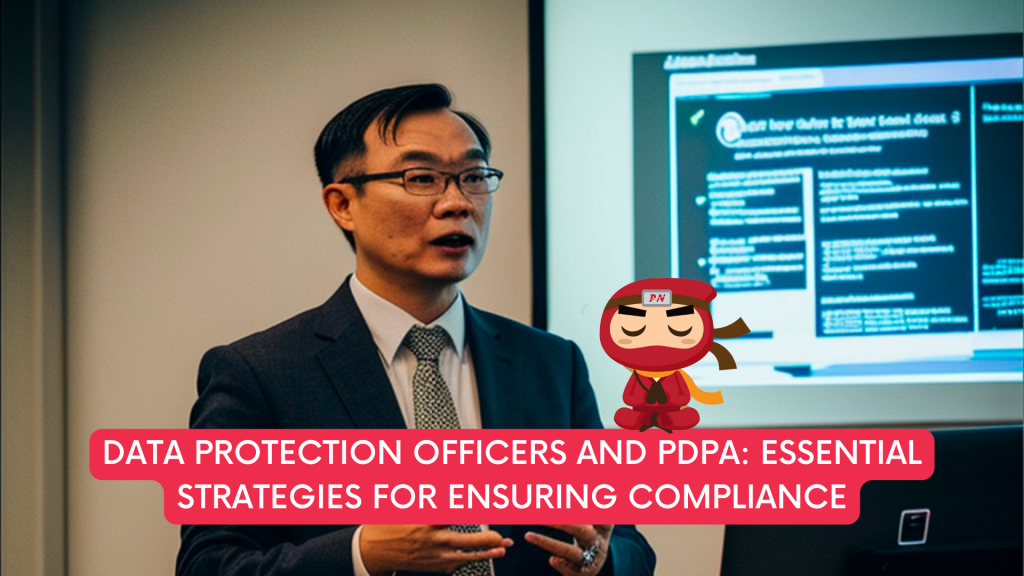KEEP IN TOUCH
Subscribe to our mailing list to get free tips on Data Protection and Cybersecurity updates weekly!







In today’s digital era, data privacy has gained increasing prominence, prompting organizations in Singapore to adhere to the Personal Data Protection Act (PDPA) to guarantee the safeguarding and appropriate management of personal data. Enacted in 2012 and revised in 2020, the PDPA establishes a general data protection law that governs the collection, use, and disclosure of individuals’ personal data by organizations.
A vital aspect of PDPA compliance is the appointment of a Data Protection Officer (DPO) who is responsible for supervising data protection duties and ensuring adherence to regulatory requirements. The Personal Data Protection Commission (PDPC) supports the Infocomm Media Development Authority of Singapore in administering compliance with the PDPA, which includes a notification or registration scheme and timing for organizations.
Here’s the essential strategies that DPOs can implement to guarantee their organizations’ compliance with PDPA regulations. By adopting these strategies, organizations can avoid potential penalties for non-compliance, which may include fines and other enforcement actions.
The first step for DPOs is to gain a comprehensive understanding of the PDPA’s scope and requirements. They should be familiar with the Act’s key provisions, such as consent, purpose limitation, notification, access and correction, and accountability [1]. DPOs must also be aware of the various exceptions and exclusions in the PDPA to avoid non-compliance.
DPOs must develop and implement robust data protection policies that address the PDPA’s key principles. These policies should outline clear procedures for obtaining consent, collecting, using, disclosing, and retaining personal data. Moreover, DPOs should ensure that their policies align with any industry-specific guidelines or requirements.
Utilizing technology can significantly improve an organization’s ability to comply with PDPA requirements. DPOs should consider implementing data protection tools that help with data classification, monitoring, and management. By automating some of these processes, organizations can enhance their data protection efforts and reduce the risk of human error.

DPOs must regularly assess and monitor their organization’s PDPA compliance. They can utilize the PDPA Assessment Toolkit available on the PDPC website to identify areas where their organization might not be compliant. By conducting regular assessments, DPOs can detect potential issues early and take corrective action.
One of the essential responsibilities of a DPO is to ensure that employees understand the importance of data protection and the requirements of the PDPA. DPOs should develop and implement training and awareness programs that cover the Act’s key provisions, their organization’s data protection policies, and any relevant industry-specific guidelines.
DPOs must promote a culture of data protection within their organization. This involves encouraging open communication about data protection issues, ensuring that employees understand the consequences of non-compliance, and implementing a system that allows employees to report potential breaches or concerns without fear of retaliation.

Your appointed DPO can work with you on your PDPA compliance, ensuring that there will be policies in place to make sure that the handling of personal data is PDPA compliant. This includes promptly responding to the PDPC with their queries to expedite the investigations and prevent a harsher penalty from the Commission.
A Data Protection Officer (DPO) oversees data protection responsibilities and ensures that organisations comply with the Personal Data Protection Act (PDPA). Furthermore, every Organization’s DPO should be able to curb any instances of PDPA noncompliance as it is the officer responsible for maintaining the positive posture of an organisation’s cybersecurity.
DPOs complement organisations’ efforts to ensure that the organisation’s methods of collecting personal data comply with the PDPA. It also ensures that policies are set in place to make sure that there will be no instances of data breaches in the future.
Don’t wait any longer to ensure your organisation is PDPA compliant. Take our free 3-minute PDPA Compliance Self-audit checklist now, the same “secret weapon” used by our clients to keep them on track. Upon completion, we will send you the results so you can take the necessary action to protect your customers’ data. Complete the free assessment checklist today and take the first step towards protecting your customers’ personal data.